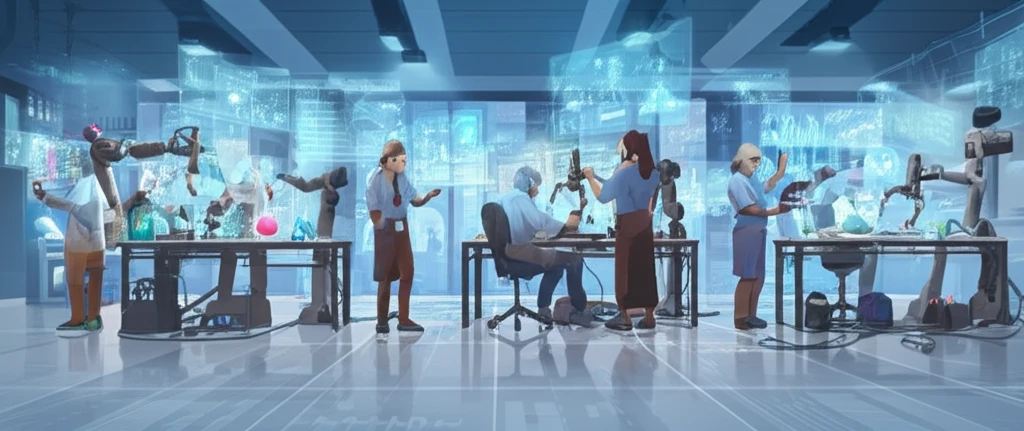
Unlock Tomorrow's Skills Today: How Online Labs are Revolutionizing Education
"Discover how remote and virtual labs are making education more accessible, engaging, and future-proof, especially for women and young learners."
For ages, humanity's progress has hinged on our ability to learn by doing. The insights we gain from observing concepts and principles in action form the bedrock of experimental activity, connecting abstract theory to tangible reality. In essence, hands-on experience is the cornerstone of true understanding.
That’s why experimental activities are so important. They prepare future engineers to solve complex practical problems and solidify theoretical knowledge. By giving students the chance to test ideas, make mistakes, and refine their approaches, we enable them to grasp concepts more deeply than traditional lectures ever could.
The rise of online experimentation has broken down barriers, making hands-on learning accessible to a wider audience. This article explores the world of remote and virtual labs, and examines how these technologies are shaping the future of education and empowering learners of all backgrounds.
What are Online Labs and Why are They Important?

Online labs come in various forms, each offering unique benefits. Here's a breakdown:
- Remote Laboratories: These labs allow users to control real equipment in a physical laboratory from a remote location. Enhanced with software, they provide access to real-world setups and devices via the Internet.
- Virtual Labs: Virtual labs use simulations to replicate experimental procedures and devices. Accessible remotely or downloadable to a user's computer, they offer a safe and cost-effective way to explore complex concepts.
- Hybrid Laboratories: Combining remote equipment and virtual simulations, hybrid labs provide both real and virtual experimentation in an interactive environment.
- Online Labs: This is an umbrella term encompassing all types of labs that can be accessed online.
Empowering the Future Through Accessible Education
The rise of online experimentation marks a pivotal shift in education, offering unprecedented opportunities for learners of all backgrounds. By embracing these innovative tools, we can break down barriers, foster a deeper understanding of complex concepts, and empower the next generation of engineers, scientists, and innovators. The future of education is here, and it's accessible to everyone.
